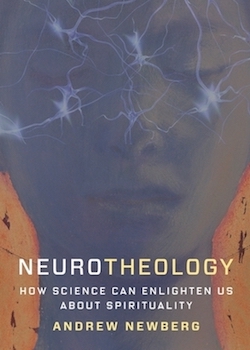Religion is often cast in opposition to science. Yet both are deeply rooted in the inner workings of the human brain. With the advent of the modern cognitive neurosciences, the scientific study of religious and spiritual phenomena has become far more sophisticated and wide-ranging. What might brain scans of people in prayer, in meditation, or under the influence of psychoactive substances, for instance, show us about religious and spiritual beliefs? Are religious and spiritual phenomena reducible to brain processes? Or might there be aspects of religion and spirituality that, at least for now, appear to transcend scientific claims?
In this book, Andrew Newberg explores the latest findings of neurotheology, the multidisciplinary field linking neuroscience with religious and spiritual phenomena. He investigates some of the most controversial—and potentially transformative—implications of a neurotheological approach for the truth claims of religion and our understanding of minds and brains. Andrew leads readers on a tour through key intersections of neuroscience and theology, including the potential evolutionary basis of religion; the psychology of religion, including mental-health and brain pathology; the neuroscience of myths, rituals, and mystical experiences; how studies of altered states of consciousness shed new light on the mind-brain relationship; what neurotheology can tell us about free will; and the limitations of what science can say about our religious and spiritual experience of reality. When brain science and religious experience are considered together in an integrated approach, Andrew shows, we might come closer to a fuller understanding of the deepest questions.
Praise for the Book
“A tour de force on this emerging field. This book provides a superb review of the science to date, and shows the many directions neurotheology may go in the future. This book raises profound implications for neuroscience, medicine, theology, and philosophy. Fascinating and clearly written and accessible for everyone. Truly mind-blowing.”
— Harold Koenig, Duke University Medical Center
“This book offers the promise that ‘neurotheology’ can help move us beyond the conflict between science and religion toward the truth, or at least to a more unified and universal perspective on the interface between spirituality and the brain. Neurotheology covers many potential points of contact between science and religion, acknowledges the existence of complexity and the dangers of simple reductionism, and presents clear information on the capabilities and limitations of various forms of neurological assessment.
— John Peteet, Harvard Medical School
“In Neurotheology, Andrew Newberg discusses the possibility of a fruitful dialogue between neuroscience and religion and that this sort of investigation may have profound impact in how we see spirituality, ourselves, and life. A world expert in neuroimaging study of spiritual experiences, Newberg proposes a non-dogmatic approach to the scientific study of spirituality, and successfully advocates for fruitful exchanges between science and religion.”
— Alexander Moreira-Almeida, Federal University of Juiz de Fora
